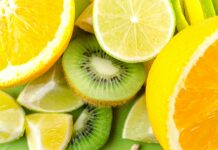Bet you didn’t know that digestion actually starts in your mouth, did you? When you chew your food, special enzymes in your saliva get to work breaking down the food and getting it ready for your digestive system to absorb. And get this – if you don’t chew your food well enough, you could end up feeling bloated and gassy! That’s because undigested food particles can make their way into your intestines, where they ferment and release gas. Nobody wants that discomfort, right?
The importance of chewing food properly

It’s crucial to chew your food properly, and here’s why: when you chew, you’re actually starting the digestion process. This means that if you don’t chew your food well enough, you might miss out on some of the essential nutrients that your body needs. But good digestion isn’t just about getting enough vitamins and minerals – it also helps you feel better overall.
- It reduces bloating, gas, and stomach discomfort
- helps you have regular, healthy bowel movements (yup, we’re talking about poo!)
- it can give you more energy
- regulates your blood sugar levels (which is super important for maintaining a healthy weight and reducing inflammation)
- generally make you feel better all around. So don’t forget to chew your food well!
Proper chewing for better digestion
Do you ever wonder if you’re chewing your food properly for good digestion? It’s not something we’re usually taught, even though it seems like a simple task. But don’t worry, we’ve got you covered! Here are some tips for chewing your food in a way that will promote better digestive health:
- Take your time and chew each mouthful 30-50 times, until the food turns into liquid.
- Swallow the food before taking another bite
- Repeat the process.
Some additional tips to improve your digestion through healthy chewing:

- Put down your utensils between bites, to help you slow down and chew each bite thoroughly.
- Count your chews at first, to ensure you’re getting enough. Eventually, you’ll be able to do this naturally, without counting.
- Try taking smaller bites that are easier to chew thoroughly.
- Avoid distractions, like TV or your phone, while eating. Focusing on something else can cause you to scarf down your food without chewing it enough.
While this may seem a bit silly or excessive, it’s important to note that our digestive systems evolved to handle fibrous foods that required a lot more chewing than the processed foods we eat today. Lazy chewing habits can cause digestive discomfort and limit our nutrient absorption. So, especially when eating natural, whole foods, it’s best to chew them thoroughly before sending them on to the rest of your digestive system. This will aid in digestion, nutrient absorption, and overall health.



